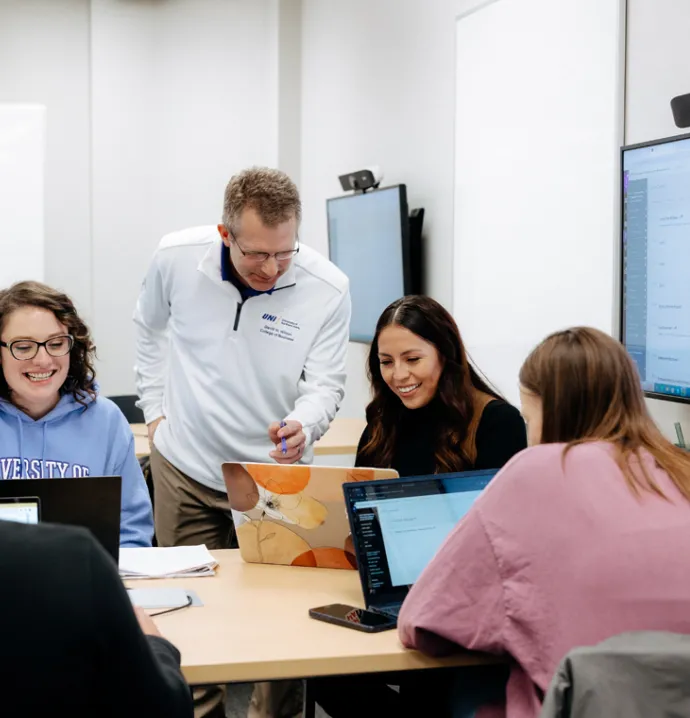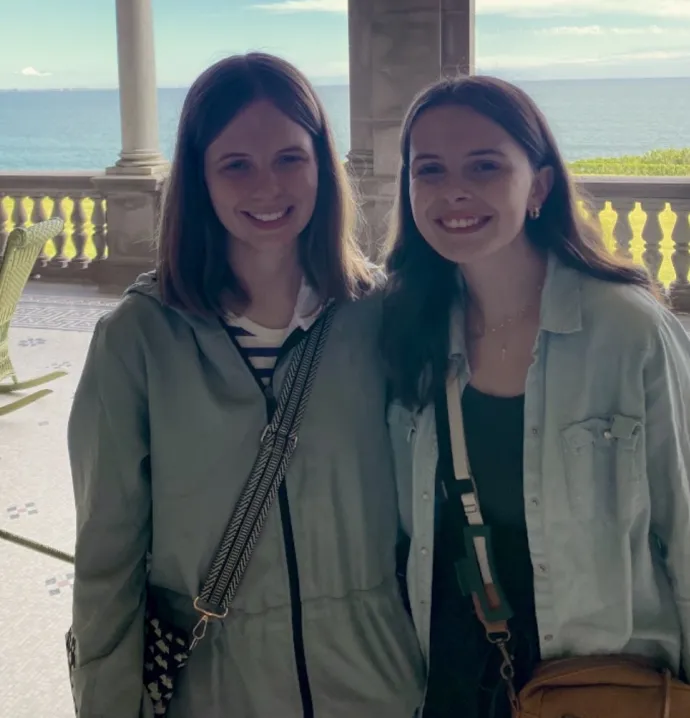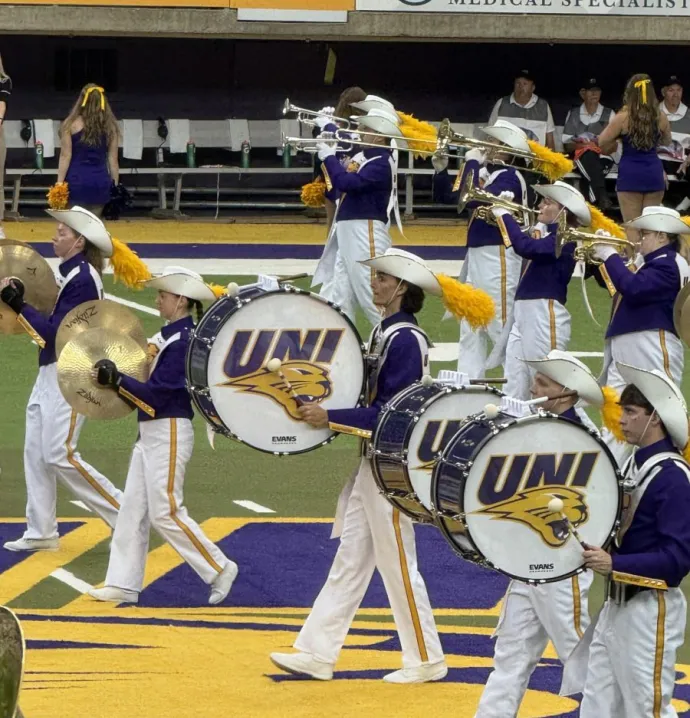Waterloo mayor, a UNI alum, is building bridges
Waterloo mayor, a UNI alum, is building bridges
Elected five years ago as the first African-American mayor in Waterloo’s 147-year history, UNI graduate Quentin Hart has focused ever since on building bridges.
It’s a turn of phrase he evokes often — finding ways to connect what for decades has been a racially and economically divided community. Waterloo is also Iowa’s most diverse city, a place where 16% of city residents are Black and about 7% are Latino. More than 40 different languages are spoken in the city’s schools. For decades the city’s dividing lines could be stark — West and East, white and black, those who had and those who didn’t.
With widespread protests over George Floyd’s death and calls for changes to how cities police their residents, Hart has led Waterloo’s response. The city recently hired its first African-American police chief and rolled out a set of policy changes intended to improve the treatment of Black and transgender people.
“I'm proud of our rich, diverse heritage, but I'm also compelled to make sure that we do everything we can in our power to be able to bridge that gap,” Hart, 49, said in a recent interview. “What we do over the course of the next one to two years is a determining factor of how our communities are going to move. I don't want it to be said when my children look back at the history books that I didn't fight as much as I could.
“People have been crying out for years,” Hart said. The demonstrations are about much more than police brutality, they include the economic discrimination the mayor has also vowed to combat — a lack of access to capital, loans and business opportunities for Black entrepreneurs.
Economic development has been another theme of Hart’s three terms in office. He speaks with pride of the investment happening in downtown Waterloo, including a string of five Black-owned businesses that line two blocks.
“That was something that we hadn't seen in a long time and, you know, we’re trying our best to work with entities to make sure we don't take our focus off support for small businesses, and also minority businesses as well,” he said.
As a Waterloo native, Hart said he benefited from being exposed to other cultures through an elementary school program that bussed students to diverse schools. His first exposure to UNI came in high school and he credits programs offered through UNI-CUE with helping him get into college.
Hart got his undergraduate degree in Minnesota and later returned to UNI for a master’s degree in higher education. In between, Hart worked for a time at UNI-CUE and taught academic success seminars through the SOAR program before landing a job in the admissions department at Hawkeye Community College.
It was while working at Hawkeye that Hart began pursuing his interest in politics. There was a string of electoral losses, but Hart stuck with it, eventually winning the fourth-ward city councilman’s seat. “I learned so much about myself throughout the process,” he said. “During an election, if your heart is in it for the right reasons, you kind of figure out who you are and you kind of figure out how you can make a difference.”
Hart is married to Cassandra Hart, a UNI alum who is an assistant/vice principal at Hoover Middle School in Waterloo. The couple have three children. Hart said his parents’ relentless work ethic — his father was a longtime John Deere foundry worker and his mother spent three decades as a nurse at Allen Hospital — were an inspiration for his own ascent.
After his own fraught encounters with police and security guards growing up, Hart has deeper empathy and understanding than most with the protests and demonstrations in Waterloo.
“I feel like I feel like the protestors do on a number of issues,” he said. “People need to be heard and need to be listened to. Then you do your best to try to make sure you move from words to actions and that's what we did....actually implementing and putting an inclusive vision in place.
“One of the reasons that I did run for mayor was to try to be a bridge builder, to be able to make those connections for people. To be a mayor that represents the entire community, whether you are a person of low economic means or you're a person that's very affluent. Whether you are an immigrant new to this community, or you are an African American or you speak one of the 45 or so different languages that we have in our Waterloo schools. I wanted to try to be a bridge builder to help everyone have better lives.”




